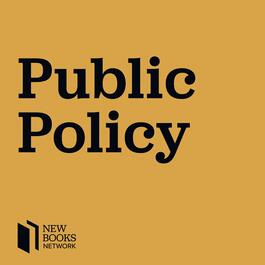
Mara Mills et al., "How to Be Disabled in a Pandemic" (NYU Press, 2025)
How to Be Disabled in a Pandemic is the first book to document the experiences of those hardest hit by the COVID-19 pandemic in New York City—disabled people. Diverse disability communities across the five boroughs have been disproportionately impacted by city and national policies, work and housing conditions, stigma, racism, and violence—as much as by the virus itself. Disabled and chronically-ill activists have protested plans for medical rationing and refuted the eugenic logic of mainstream politicians and journalists who “reassure” audiences that only older people and those with disabilities continue to die from COVID-19. At the same time, as exemplified by the viral hashtag #DisabledPeopleToldYou, disability expertise has become widely recognized in practices such as accessible remote work and education, quarantine, and distributed networks of support and mutual aid. How to Be Disabled in a Pandemic (NYU Press, 2025) charts the legacies of this “mass disabling event” for uncertain viral futures, exploring the dialectic between disproportionate risk and the creativity of a disability justice response. How to Be Disabled in a Pandemic includes contributions by wide-ranging disability scholars, writers, and activists whose research and lived experiences chronicle the pandemic’s impacts in prisons, migrant detention centers, Chinatown senior centers, hospitals in Queens and the Bronx, working from bed in Brooklyn, subways, schools, housing shelters, social media, and other locations of public and private life. By focusing on New York City over the course of three years, the book reveals key themes of the pandemic, including hierarchies of disability vulnerability, the deployment of disability as a tool of population management, and innovative crip pandemic cultural production. How to Be Disabled in a Pandemic honors those lost, as well as those who survived, by calling for just policies and caring infrastructures, not only in times of crisis but for the long haul. A full transcript of this interview is available at the link here Mara Mills is Associate Professor in the Department of Media, Culture, and Communication at New York University. Mills is cofounder of the NYU Center for Disability Studies and coeditor of Crip Authorship: Disability as Method. Harris Kornstein is Assistant Professor of Public and Applied Humanities at the University of Arizona. They have published research and essays in Surveillance & Society, Curriculum Inquiry, Wired, and others. Faye Ginsburg is Kriser Professor of Anthropology at New York University. Ginsburg is cofounder of the NYU Center for Disability Studies and author of Contested Lives: The Abortion Debate in an American Community and coauthor of Disability Worlds. Rayna Rapp is Professor Emerita in the Department of Anthropology at New York University, and the author of Testing Women, Testing the Fetus: The Social Impact of Amniocentesis in America and coauthor of Disability Worlds. Learn more about your ad choices. Visit megaphone.fm/adchoices Support our show by becoming a premium member! https://newbooksnetwork.supportingcast.fm/public-policy
From "New Books in Public Policy"


Comments
Add comment Feedback